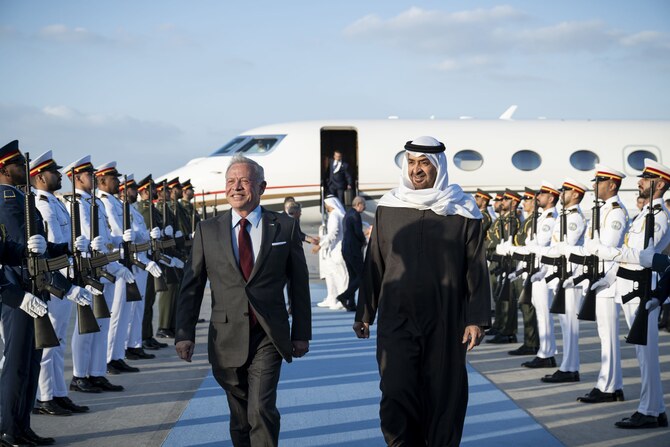KHAN YUNIS, Palestinian Territories: Gazan mother Amal Abu Shalouf ran her hand over her son’s face and hair, a brief farewell before a man abruptly sealed the body bag carrying the three-year-old who was killed just hours earlier on Tuesday.
“Amir, my love, my dear!” cried his mother, struggling to cross the crowded courtyard of Nasser Hospital in Khan Yunis, southern Gaza’s main city, where several bodies lay in white plastic shrouds.
According to the civil defense agency, at least nine people were killed on Tuesday in the southern Gaza Strip as Israeli forces carried out military operations, more than 20 months into the war triggered by Hamas’s 2023 attack on Israel.
Contacted by AFP, the military did not respond to a request for comment about Amir Abu Shalouf’s death.
At the hospital, a man carried the boy’s body in his arms through a crowd of dozens of mourners.
“I swear, I can’t take it,” his teenage brother, Ahmad Abu Shalouf, said, his face covered in tears.
“What wrong did he do?” said another brother, Mohammad Abu Shalouf. “An innocent little boy, sitting inside his tent, and a bullet struck him in the back.”
Mohammad said he had “found him shot in the back” as he returned to the tent that has become the family’s home in Al-Mawasi, a coastal area near Khan Yunis that is now a massive encampment for displaced Palestinians.
The devastating war has created dire humanitarian conditions in Gaza, where the United Nations has warned that the entire population is at risk of famine.
The grieving mother, comforted by relatives, said her young son had been begging for food in recent days and dreaming of a piece of meat.
“There is no food, no water, no clothing,” said Amal, who has eight children to take care of.
Amal said she too was injured in the pre-dawn incident that killed her son.
“I heard something fall next to my foot while I was sitting and baking, and suddenly felt something hit me. I started screaming,” she said.
Outside the tent at the time, she said she tried crawling and reaching for other family members.
“Then I heard my daughter screaming from inside the tent... found them holding my son, his abdomen and back covered in blood.”
A group of men formed lines to recite a prayer for the dead, their words almost drowned out by the noise of Israeli drones flying overhead.
In the second row, Ahmad Abu Shalouf held his hands over his stomach in prayer, unable to hold back a stream of tears.
Similar scenes played out at the hospital courtyard again and again over several hours, as the day’s dead were mourned.
At one point, an emaciated man collapsed in front of the shrouded bodies.
One mourner pressed his head against one of the bodies, carried on a stretcher at the start of a funeral procession, before being helped up by others.
At a distance, a group of women supported Umm Mohammad Shahwan, a grieving mother, with all of them in tears.
“We need the war to end,” said Amal Abu Shalouf.
In Gaza, she lamented, “there’s no hope or peace.”




























